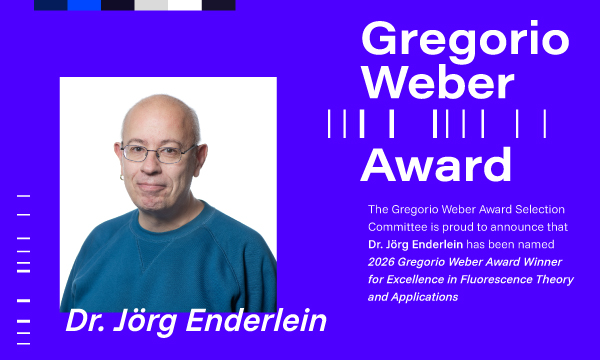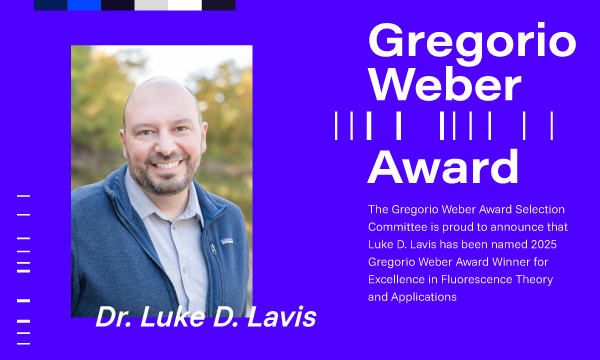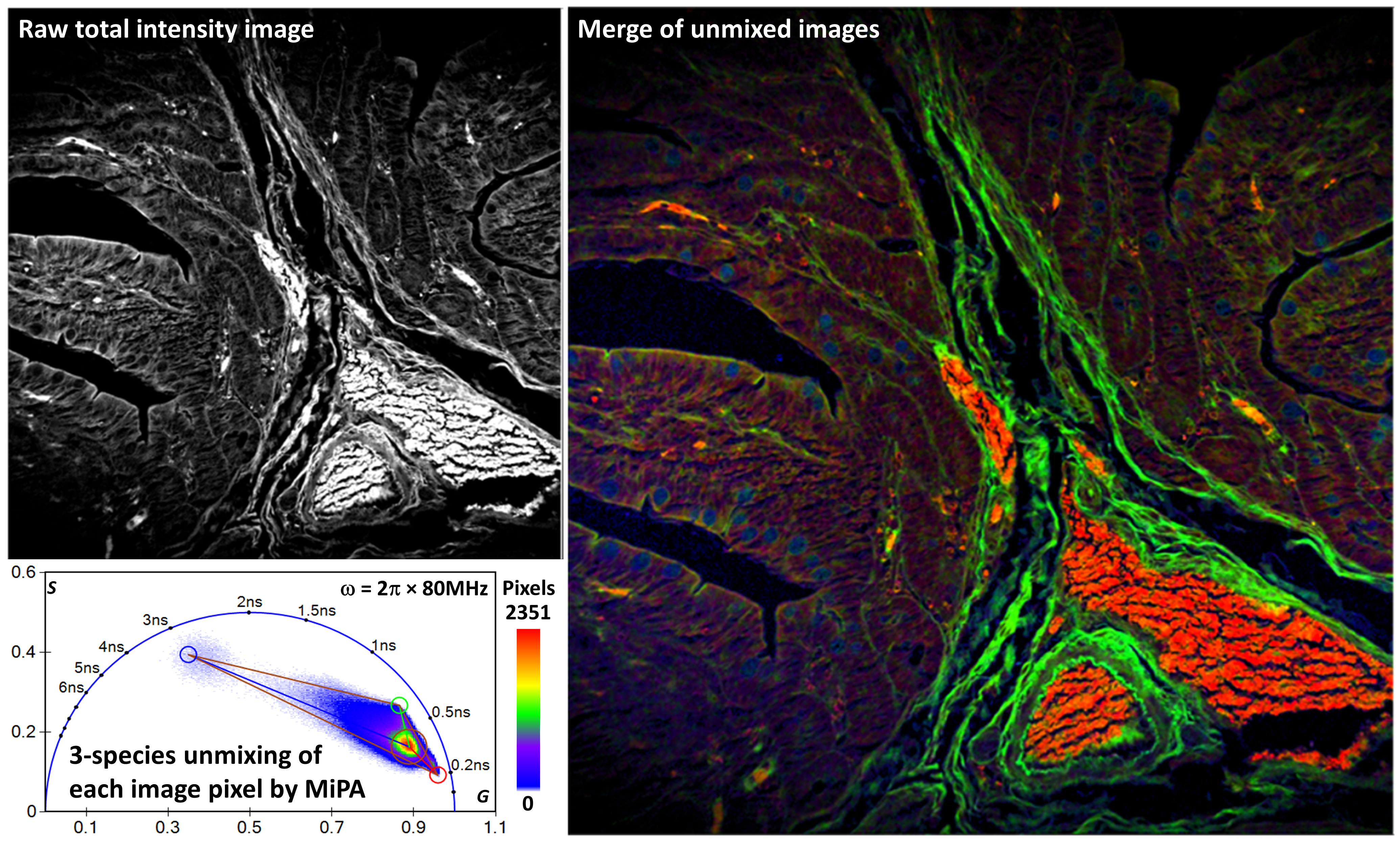NEWS
ISS Honors Dr. Robert Clegg with Gregorio Weber Award
Champaign, Illinois - February 28, 2009 - At this year’s Annual Meeting of the Biophysical Society in Long Beach, California, ISS announced the recipient of the Gregorio Weber Award for Excellence in Fluorescence Theory and Applications. ISS honored Dr. Robert Clegg for his significant and original contributions to the advancement and applications of fluorescence techniques.
The award is named for Professor Gregorio Weber who pioneered the developments in the theory and use of fluorescence techniques. Dr. Clegg is committed to this tradition.
Prof. Clegg graduated from Kansas State University in 1968 and conducted his doctorial studies at Cornell University where he was awarded the Ph.D. in 1974, under the supervision of Prof. Elson; his dissertation was titled Relaxation Kinetics Applying Repetitive Pressure Perturbations. Following graduation, Professor Clegg moved to Göttingen, Germany, where he started work as a postdoctoral research associate in the Max Planck Institute for Biophysical Chemistry. In 1976, he was promoted to Senior Staff Research Associate in the Department of Molecular Biology. Dr. Clegg remained at the Max Planck Institute until he accepted a position as Professor of Physics at the University of Illinois at Urbana-Champaign in 1998. Presently, Dr. Clegg is a Professor in the Departments of Physics and Bioengineering and is on the faculty of the Biophysics Program at the University of Illinois.
Prof. Clegg research is multifaceted, though it is centered on the elucidation of multifarious molecular structures, conformational changes, thermodynamic stabilities and functions of nucleic acids and protein/nucleic acid complexes. He employs a variety of techniques, such as fluorescence spectroscopy, rapid kinetic methods and physical perturbations in order to probe the intra- and intermolecular interactions of these macromolecular structures and to understand the physical basis of their biological functions. Fluorescence resonance energy transfer (FRET) is used for mapping the threedimensional structures of biological macromolecules. Conformational changes are followed by employing steady-state and time-resolved fluorescence techniques. Thermodynamic conditions and molecular-context features influence which structures are preferred by macromolecules.
Prof. Clegg is a pioneer in the development of full-field fluorescence lifetime-resolved microscopy (FLIM) and its applications to endoscopy for medical applications (e.g. in tumor diagnosis). These new imaging methods are applied to a variety of biological problems, such as the detection of tumor cells and their discrimination from healthy cells by identifying specific fluorescence lifetimes. These techniques introduce new opportunities for quantifying and improving the discrimination of images of fluorescence molecules in biological systems. The technology has been applied to fast kinetics studies (microsecond mixing of two fluids) and the study of photosynthesis.
ISS is honored to recognize Dr. Clegg as this year’s recipient of the Gregorio Weber Award for Excellence in Fluorescence Theory and Applications for his continued contributions to the evolution of the field.



